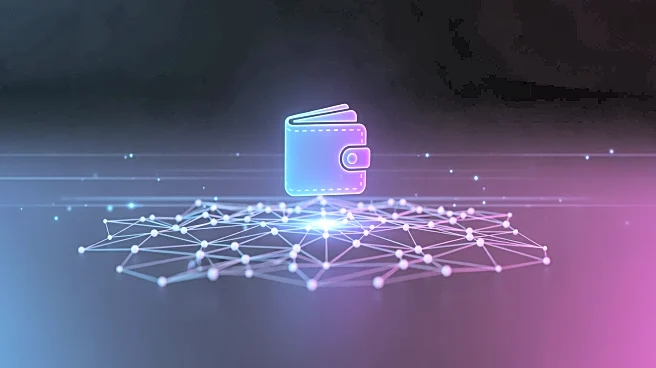What's Happening?
Mastercard has partnered with Polygon Labs and Mercuryo to expand its Crypto Credential framework to self-custody wallets. This initiative introduces verified, username-style aliases to replace traditional long-form wallet addresses, aiming to streamline
digital asset transactions. Polygon was chosen for its fast settlement and low transaction costs, making it ideal for payment-scale activity. Mercuryo will handle identity verification and alias issuance, allowing users to link these aliases to their wallets and request a Crypto Credential soulbound token on Polygon. This development is part of Mastercard's commitment to delivering secure and scalable blockchain experiences.
Why It's Important?
The introduction of human-readable aliases in blockchain transactions is a significant step towards making digital assets more accessible to consumers. By reducing errors associated with copying long hexadecimal addresses, the initiative aims to build trust in digital token transfers and enhance user experience. This move reflects a broader industry trend where payments, identity, and blockchain infrastructure are increasingly overlapping. As financial institutions expand on-chain capabilities, frameworks like Crypto Credential are helping define the next generation of global payments, reinforcing Mastercard's commitment to secure and scalable blockchain experiences.
What's Next?
The partnership between Mastercard, Polygon, and Mercuryo is expected to lead to broader consumer adoption of self-custody wallets. As the initiative rolls out, it may encourage other payment networks to adopt similar verification systems, further integrating blockchain technology into everyday financial transactions. Stakeholders such as fintech companies and neobanks might explore similar frameworks to enhance their digital asset offerings. Additionally, the success of this initiative could pave the way for increased integration of blockchain technology in mainstream financial services.
















